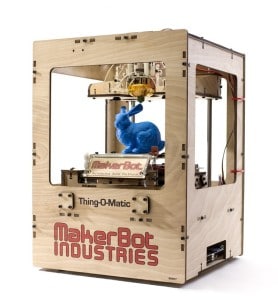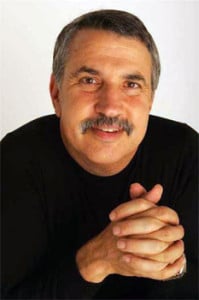Those of you who don’t religiously read the Op-ed page of The New York Times, but who are interested in the Internet of Things, probably want to surf on over to the Times’s web site to check out Thomas Friedman’s opinion piece “When Complexity Is Free” from the Sunday Times.

There are a couple of points, here.
- Friedman is one of the most astute observers of the geopolitical zeitgeist. His 2005 book The World Is Flat talked about the confluence of technologic innovation, the Internet and economic globalization. It is one of the most widely read works of “business writing” of the last century and helped explain, for the public and policymakers, the tectonic changes taking place in emerging and mature economies worldwide.
- Friedman’s stature as a trend-spotter (see #1) means that, when he says something is important (as he did with IoT this week) important folks take notice.
In the case of Sunday’s op-ed, Friedman discusses his recent trip to a General Electric research and development facility in upstate New York. As is often the case, Friedman mixes personal anecdote with high level observations and opinions about geopolitics. He uses his GE visit as a round about way to criticize Washington D.C.’s gridlock and policy paralysis. GE shows that, contrary to what we see coming out of The Beltway, interesting and exciting work is still happening in the U.S. – research that will transform the workplace in the years ahead.
Specifically, Friedman quotes a GE researcher observing that “complexity is free,” by which she means: technology innovations like super-fast and sophisticated computer rendering and 3D printing are driving the cost of complex engineering down close to zero. GE engineers can now use these technologies to rapidly prototype and test – say – jet engine parts, accomplishing in days what might have taken years to accomplish just a few years ago.

The other major observation Friedman has is that products won’t just be manufactured better and faster – they will also be smarter. Friedman notes that G.E. talks about the “Industrial Internet” or the “Internet of Things” to describe the way that its engines (and other technology) will be outfitted with thousands of “online sensors” that “constantly measure and broadcast every aspect of performance.” The result, he said, will be diagnostic capabilities that can forecast failures, not merely detect them, and reams of data that will allow complex organizations to allocate resources and equipment with greater efficiency.
As he did in The World is Flat, Friedman argues that these two phenomenon are set to transform work, exploding traditional assumptions that companies, workers and policy makers hold about fundamental questions about what type of innovation, products and companies are possible and the conditions necessary for them to thrive.
“Watch this space, even if Washington doesn’t,” Friedman argues. “When everything and everyone becomes connected, and complexity is free and innovation is both dirt-cheap and can come from anywhere, the world of work changes.”
It’s worth a read. Check it out!
